#Flims
Explore tagged Tumblr posts
Text










priscilla movie (2023) aesthetic ⊹∘˚∘୨୧∘˚∘⊹
#priscilla movie#priscilla#angelcore#girlblogging#this is what makes us girls#tumblr aesthetic#aesthetic#girls icons#coquette#tumblr girls#sofia coppola#flims#lana del ray aesthetic#vintage aesthetic#vintage#lana how i hate those guys#moodboard#elvis and me#vinyl#priscilla 2023#manic pixie dream girl#pink aesthetic#old coquette#bambi eyes#bambi#cailee spaeny#priscilla presley#ballet aesthetic#1960s
74 notes
·
View notes
Text

Flims - Switzerland (by Anna Jewels (@earthpeek))
https://www.instagram.com/earthpeek/
#Flims#Switzerland#Schweiz#Europe#Nature#Landscape#Outdoor#Mountains#View#Photography#Travel Photography#Fotografie#Travelling#Traveling#Travel#Tourism#Holiday#Urlaub#Reisen
911 notes
·
View notes
Text
I hate that these are the characters I can relate to
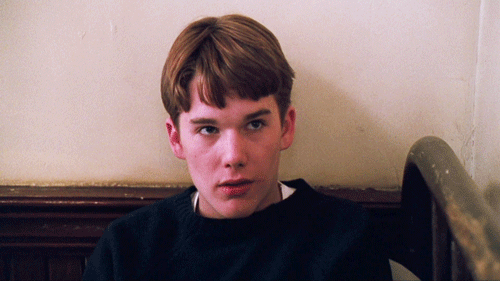
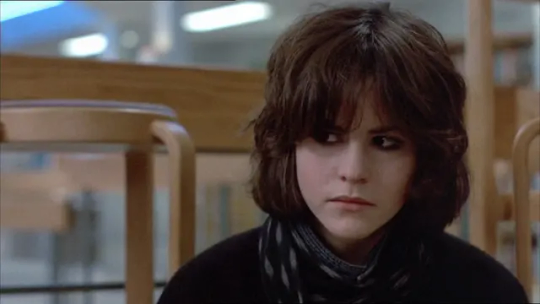

#they’re all just shy outcasts with few friends from coming of age movies#i think it’s bc im devastatingly lonely and sad#but also they all autism coded so#todd anderson#dead poets society#dead poets#dead poets fandom#dead poets society fandom#dps boys#dps fandom#dps#dps memes#allison reynolds#the breakfast club#the perks of being a wallflower#the perks of being a wallflower charlie#flims#cinema#movies#coming of age movies#80s movies
270 notes
·
View notes
Text
This relationship or nothing at all.





#movies#flims#romantic relationships#otp#they support each other#tropes#couples#the addams family#little shop of horrors#rocky movies#lisa frankenstein#my cousin vinny
26 notes
·
View notes
Text

The Substance x Anora, 2024
15 notes
·
View notes
Text

cool girl.
#2014 tumblr#i miss 2014#girl blogger#thoughts#movies#cinema#flims#cinephile#cinemetography#gone girl#amy dunne#rosamund pike#cool girl#gaslight gatekeep girlboss#girl boss gaslight gatekeep
10 notes
·
View notes
Text
John Bender played by Judd Nelson






9 notes
·
View notes
Text

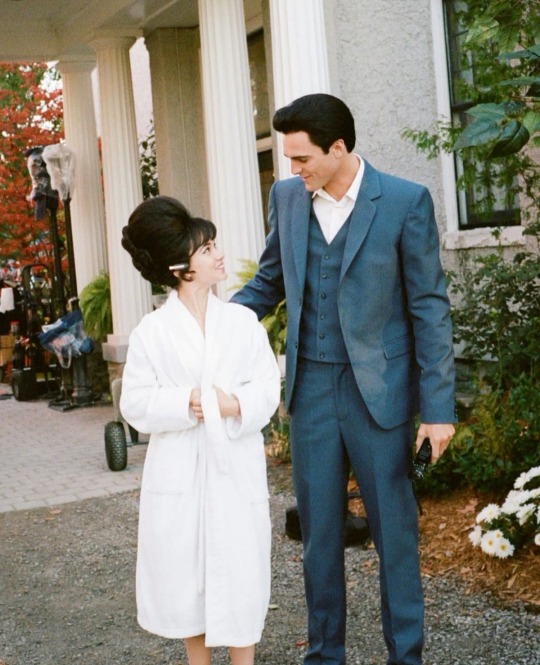
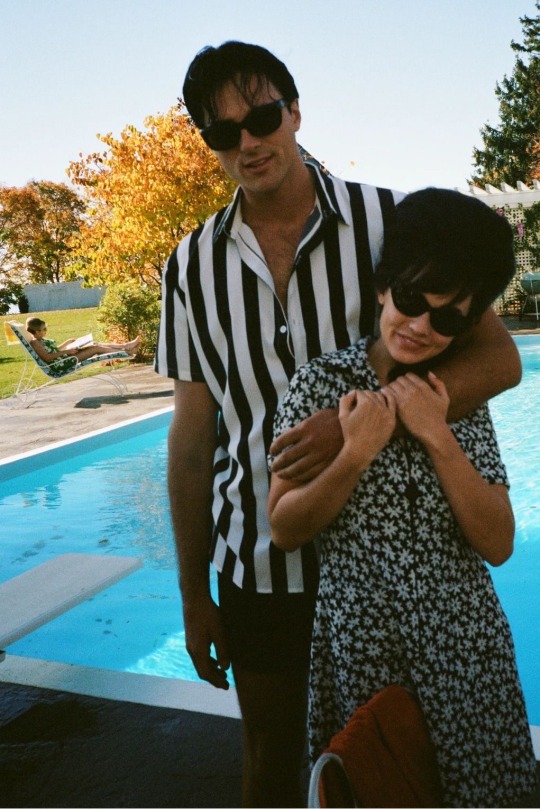
Priscilla and Elvis.
#movies#movie aesthetic#aesthetic#photography#priscilla movie#priscilla 2023#jacob elordi#cailee spaeny#flims#fashion#photoshoot#elvis presley#elvis and priscilla
36 notes
·
View notes
Text
🂱 𝔇𝔬𝔫𝔱 𝔊𝔬 𝔒𝔣𝔣 𝔚𝔞𝔫𝔡𝔢𝔯𝔦𝔫𝔤
𝐅𝐚𝐧𝐝𝐨𝐦: 𝐘2𝐊 - [2024]
𝑊𝑜𝑟𝑑 𝑐𝑜𝑢𝑛𝑡: 2.1𝑘
𝐓𝐫𝐢𝐠𝐠𝐞𝐫𝐬: 𝑨𝒃𝒖𝒔𝒆, 𝒎𝒆𝒏𝒕𝒊𝒐𝒏𝒔 𝒐𝒇 𝒂𝒃𝒖𝒔𝒆, 𝒔𝒎𝒐𝒌𝒊𝒏𝒈 𝒑𝒐𝒕, 𝒄𝒖𝒓𝒔𝒊𝒏𝒈 𝒂𝒏𝒅 𝒊𝒎𝒑𝒍𝒚𝒆𝒅 𝒑𝒂𝒔𝒕 𝒔𝒆𝒙.

🂱 𝑆𝑢𝑚𝑚𝑎𝑟𝑦 - 𝐴𝑓𝑡𝑒𝑟 𝑎 𝑏𝑙𝑜𝑤𝑜𝑢𝑡 𝑓𝑖𝑔ℎ𝑡 𝑤𝑖𝑡ℎ ℎ𝑖𝑠 𝑎𝑏𝑢𝑠𝑖𝑣𝑒 𝑠𝑡𝑒𝑝𝑓𝑎𝑡ℎ𝑒𝑟, 𝐹𝑎𝑟𝑘𝑎𝑠 𝑐𝑟𝑎𝑠ℎ𝑒𝑠 𝑎t 𝑦𝑜𝑢𝑟 𝑝𝑙𝑎𝑐𝑒, 𝑤ℎ𝑒𝑟𝑒 𝑡ℎ𝑒 𝑡𝑤𝑜 𝑜𝑓 𝑦𝑜𝑢 𝑚𝑎𝑘𝑒 𝑝𝑙𝑎𝑛𝑠 𝑡𝑜 𝑟𝑢𝑛 𝑎𝑤𝑎𝑦 𝑡𝑜 𝑡ℎ𝑒 𝑊𝑒𝑠𝑡 𝐶𝑜𝑎𝑠𝑡. 🂱

The midnight hours were oddly silent, and you couldn't figure out why the odd feeling deep in your gut refused to allow you to drift to sleep. The alarm clock taunted you in bed, as did the television in the living room, and the neon green of the digital stove time kitchen.
It was until the bass drum of loud nu-metal vibrated through the entire tiny suburban neighborhood that you understood. As it grew closer, the vibrations assault on the windows suddenly stopped, plunging the sleepy suburbs back into saturday night ambience. Parked in the driveway was the dent covered black Trans Am belonging to Farkas. The chill of a New Jersy night in late October drifted through the half-cracked windows of the kitchen where you watched him drag himself from the cracked leather seats you knew so well.
He slammed the car door, the sound sharp like his anger brewing hot on nights like these. Farkas, with his sharp angles and perpetually narrowed dark brown eyes, was like a fallen angel carved out of granite stone. His long wispy hair, usually a curtain that obscured half of his face under a black toboggan, was pulled back into a messy ponytail. The light of the orange gleam of the ancient porch light revealed the faint purple bruise blooming on his right cheek, right below his left eye.
He didn’t bother ringing the botched excuse for a doorbell that your father attempted to install nearly a year ago. He had been to your house far too many times not to know that it didn't work. He also knew that right beneath the garden frog was a key, but he respected the boundaries like an unwelcomed guest. Farkas just pounded his fist against the door in a repetitive and desperate rhythm. When you opened the door, Farkas stood in the frame, the unspoken question hanging heavy in the air.
“Can I crash?” His voice was rough, molded by cigarettes and tears in the back of his throat that he refused to let fall. His usual belligerence was replaced with something that was close to pleading despite the pride he held on to so dearly.
Without a word, you stepped aside, letting him in. The house felt too quiet without your father bumbling about, and the silence of it was seemingly amplified by the urgency for safety emitting off of him. He kicked his skating chucks to the corner of the living room as always, where haphazardly until his pride beat him and he left. You closed the door behind him, searching for the right words to say. Of course, you already knew what happened but you asked anyway, not sure if out of respect or if hearing him say it would help conquer his pride.
“What happened?” You ask softly, following behind him into the kitchen like a puppy. Even his leather coat seemed to beaten, thrown on in a hurry without any regards to how it hung to his frame.
He didn’t answer you right away, simply sat down at the kitchen table, staring at the worn surface, tracing his finger along the coffee stains burnt into the hardwood. Switching from the table, his fingers slipped through his hair, making the ponytail even messier, stray hair catching the drifts of wind through the window. The wind carried the scent of him as it tousled his hair - old weed, axe bodyspray, sweat, oak, leather and the permanent odor of Marlboro cigarettes.
“Phil, that asshole-” He let out a frustrated sigh, one you'd heard so many times and answered it's beck and call.
Phil was his stepfather. Everyone knew Phil, the man who took the brunt of the blame for the bully that his stepson had become. Anyone who truly understood Farkas or better put, that Farkas allowed to get close to him, knew that Phil was the source of constant turmoil in the life of Farkas before and after the death of his mother. Not only to his son, but anyone who met Phil even once in their life knew he was pure rotten, a manipulatior lurking under pile of lies.
“That asshole, he’s such an asshole.”
You sit down next to him, leaving a careful space between the two of you. You knew not to touch him yet. “What did he do this time, Farkas?”
His fingers run through his hair again, tangling it further. “Things were said, things were thrown. Don’t wanna sound like a pussy, but I miss her. I miss her so damn much. He said it was no wonder why she-.” Farkas trailed off, voice cracking.
Your heart ached for him. Farkas never talked about his mother, but you knew from brief fragmented mentions that she had been everything to him and more. The loss had left a gaping hole in his rough exterior that he tried and failed to hide. He had always been a loud presence, but when he’d first started coming around, long after she’d gone, there had been a softness, a vulnerability that only poked through in flashes.
All you could think to say sounded pathetic once it left your lips. “He's evil, Farkas. Everyone knows that.”
It was solidarity, nothing more.
You had always understood, at least better than most. You’d been best friends since freshman year and found common ground with his friends, Ash, August and the other ragtags who came to think of you as “cool” and “alright” as they put it. You sat with him through his awkward teenage angst, his aggressiveness, constant rebelling against anything and everything. You’d listen to him rant about the injustices of the world and how the world would be better if there was a sliver of an opportunity to rebuild from the ashes. Despite that, you could see straight through him, picking out the soft spots barely anyone glimpsed.
Farkas didn't want to rebuild the world, he wanted to rebuild himself from the ashes that life had burned from him, exterior and interior. He just didn't have a clue of where to start.
“He was just trying to get to you.” You said, hating the platitude as it left your mouth.
Farkas pulled a small, crinkled baggie from his pocket without. When he zipped it open, the faint scent of skunk hit your nose. Before you could say something, he was offering it to you. “Wanna get high?”
You hesitated, your father’s scolding voice ringing in your ear, then you nodded. Your dad was out of town on a work trip with an idea to revolutionize the toy world with an off-brand version of a Tamagotchi. That meant that there was no one to nag either of you on the harms of weed or whatever all fathers recite. This was Farkas’s coping mechanism, a way for him to calm the storm raging inside. Who was anyone to interfere with it? Even you, the A+ student set to graduate as salutatorian, second to some whiz kid who seemed to have a deep set envy of the computer genius sophomore Laura, had your reasons for wanting to escape, even if just for a little while.
The suffocating smallness of your town and the tedious routine of your life felt like a weight that you dragged everywhere. Weed was simply a temporary way to get rid of it for a little while.
You dug out your old bong, the one you kept hidden in a shoebox from your father, and soon, the two of you were enveloped in the haze of smoke and quiet. Farkas, usually so restless, sat still, gaze fixed on the flickering TV screen between infographics and a static dance. After a while, he finally spoke, the tension in his shoulders beginning to ease.
“I hate this place.” He muttered. “I hate this stupid fucking town, this stupid fucking state, and most of all I hate my-, I hate him.”
“Me too.” You admitted your frustrations in his presence, something you normally wouldn't say but with Farkas, you felt as though you could say anything and you were safe in your right to say it. Nothing was off the table, “I want to leave. I’ve wanted to leave for so long.”
He turned to you, the static of the television creating a beautiful kaleidoscope of colors on his tanned skin. “Then let’s go. Let’s fucking go.”
A spark ignited in your chest, a wild sense of possibility. You always fantasized about running, escaping the predictability and boredom of your life. All it was, at the very core, was a far-off dream, something left for late at night when it seemed that all the world was silent or perhaps, all the good things in the world were happening somewhere else. You had college and the mundane work life to look forward to, what they preached about ever since you were a little kid. It was ingrained as the right way, the only way to make something of your life. As you got older, it seemed more and more bleak.
Here, high off your ass and with the desperation to be heard in Farkas’s every mannerism, the embodiment of chaos, it felt tangible.
It felt real.
So, fucking real.
“Where would we go?” You asked, letting the calm of weed melt deep to the bones.
He takes the bong back from you. “California. I’ve always wanted to go there. It’s supposed to be different there.”
“But it’s far.” You weren't arguing with his choice destination, but rather stating the obvious.
“So what? We can do it.” Farkas insisted, the confident guy you knew so well returning in full glory, bolstered by the pot and his usually rebellious nature. Even though the weed had his eyes glossed over, there was a mischievous gleam. “We can sell some shit. I know a guy who might be able to get us some fake IDs.”
You raise an eyebrow. “Who? Fucking stoner Garrett? And then what?”
“We could be whoever we want to be.” The idea of freedom was delicious. It was vivid, and alluring but seemingly unattainable under normal circumstances, a contrast to the grey monotony of their lives.
“But what about school?” You were still trying to grasp the enormity of it all.
“Who the hell cares? We’re practically done anyways.”
You had a feeling that whatever was going to come from his mouth next was going to be wild. “We can get some crappy jobs and hey, maybe get eloped. On a beach somewhere cool, with palm trees.”
Absurd. That was the only word for it. It was ridiculous but mostly absurd. At the time, it felt so right. A desperate, romantic act of defiance. The two of you met eyes, the light of the dim lamp catching the wildness in them and beyond that, a kindred spirit, someone as eager to escape as you were. Someone who was not alone in his feelings, ones that you shared as well.
A smile tugged at your lips before you catch it. “Yeah. You know what, let's do it.”
The rest of the night was a haze of whispered planned and half-formed ideas. There was talk about packing, how much cash you would need, and what kind of life you wanted in this imagined California. Farkas brought up his mom again, how she’d always dreamed of returning to Mexico to find the family she’d lost contact with over the years before seeing the beauty of the coast that once had so ingrained in her youth. It was where she’d met his father in her hippie-era youth, naming him after a thing she’d seen on the highway only hours before his birth - a red wolf scampering across the desert highway in the twilight hours of the winter.
Farkas, Hungarian for wolf.
Farkas’s real father was still hellbent on keeping his vagabond life and in a desperate attempt to give her son a better life than moving from state to state every few months, she married a well-to-do socialite with estates on Jersey Shore and California's coast, before settling in a small suburban settling in New Jersey.
You listened to Farkas, sharing hurts that were left unspoken, the quiet resentments that had been festering for years leading to a feeling of being trapped and unseen. For the first time, you felt as if you were hearing him and seeing him for who he was. Farkas, without the weight of his stepfather and the pressure to keep his jackass persona for all the world to see, was vibrant, almost boyish. He could be sweet when he didn't feel the pressure to be cruel.
As the first rays of sunlight painted the sky with a magical array of pink and orange, the two of you sat huddled on the couch, surrounded by an empty bong, a makeshift ashtray on the TV dinner table overflowing with cigarette butts, and the fading aroma of cheap weed. With his mane of hair falling down your chest like an untamed waterfall, he rested his head on your shoulder. It made your stomach flip just at the idea of him being so close to you.
The two of you had been intimate, and that was no secret. Even though you had, this felt more intimate than sex. It felt real.
The Trans Am parked outside seemed more like a chariot of escape than a crappy beat-up first car, waiting to take you away. As you held Farkas, you felt thankful for the quiet vulnerability he’d given you. This was more than an escape plan, but something desperate, deeper. It was something that had been brewing in the both of you for years.
You still weren’t completely sure where you would end up or what you were going to do when you got there, but you had to admit that for the first time in a long time, you felt a flicker of something warm. Hope. The world felt big and scary outside of your little suburban town but all the same full of possibilities. You were running away, that much was true but all the same, you were running towards something, no matter how unknown, with someone who finally understood you.
And at the end of the day, you realized that this was all that mattered.
It was 1999, the end of the century.
How serious could it be?
𝐀𝐮𝐭𝐡𝐨𝐫𝐬 𝐍𝐨𝐭𝐞: 𝑀𝑒 𝑎𝑓𝑡𝑒𝑟 𝑐𝑜𝑚𝑖𝑛𝑔 𝑏𝑎𝑐𝑘 𝑡𝑜 𝑡𝑢𝑚𝑏𝑟 𝑎𝑓𝑡𝑒𝑟 𝑎 𝑦𝑒𝑎𝑟 𝑎𝑛𝑑 𝑎 ℎ𝑎𝑙𝑓 ℎ𝑖𝑎𝑡𝑢𝑠 𝑎𝑛𝑑 𝑟𝑒𝑙𝑒𝑎𝑟𝑛𝑖𝑛𝑔 ℎ𝑜𝑤 𝑡𝑜 𝑢𝑠𝑒 𝑡ℎ𝑒 𝑤𝑟𝑖𝑡𝑖𝑛𝑔 𝑝𝑎𝑟𝑡:

#y2k film#farkas#rachel zegler#eli y2k#ash y2k#flims#y2k 2024#eduardo franco#a24 films#a24#a24 movies#y2k
3 notes
·
View notes
Text
I’m not defending Gaston
I despise him and I always lose patience halfway through his song
But he gave Belle some pretty flowers in the live action version

I might be short-sighted and have no taste when it comes to bouquets but I've seen some horrendous ones. This is not one of them.
12 notes
·
View notes
Text










the virgin suicides 1999 ⋆˚ 𝜗𝜚˚⋆
#the virgin suicides#sofia coppola#flims#aesthetic#angelcore#girlblogging#this is what makes us girls#tumblr aesthetic#vintage aesthetic#movies#vintage#1990s#90s#90s aesthetic#bonnie lisbon#lux lisbon#therse lisbon#mary lisbon#cecilia lisbon#angel#tumblr girls#girls icons#lana del ray aesthetic#the virgin mary#kristen dunst#coquette#old coquette#ballet aesthetic#pink aesthetic#lizzy grant aesthetic
25 notes
·
View notes
Text

Flims - Switzerland ((by Anna Jewels (@earthpeek))
https://www.instagram.com/earthpeek
#Flims#Switzerland#Swiss#Schweiz#Nature#Landscape#Outdoor#Rural#Countryside#Mountains#Travelling#Traveling#Tourism#Holiday#Urlaub#Reisen#Vacation
197 notes
·
View notes
Text
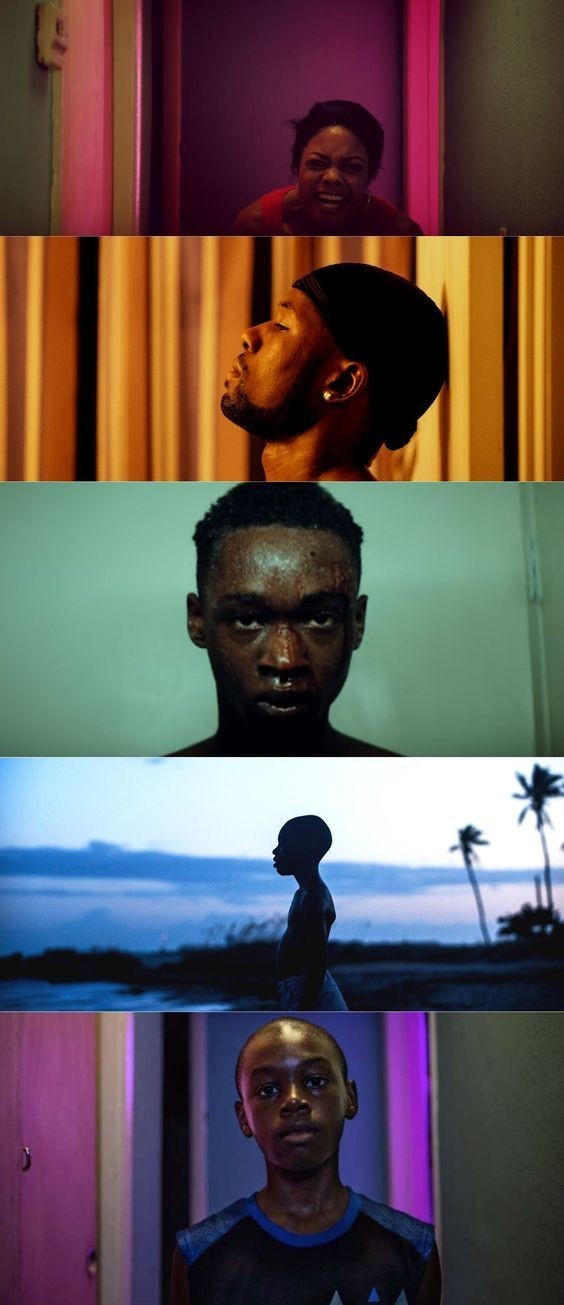
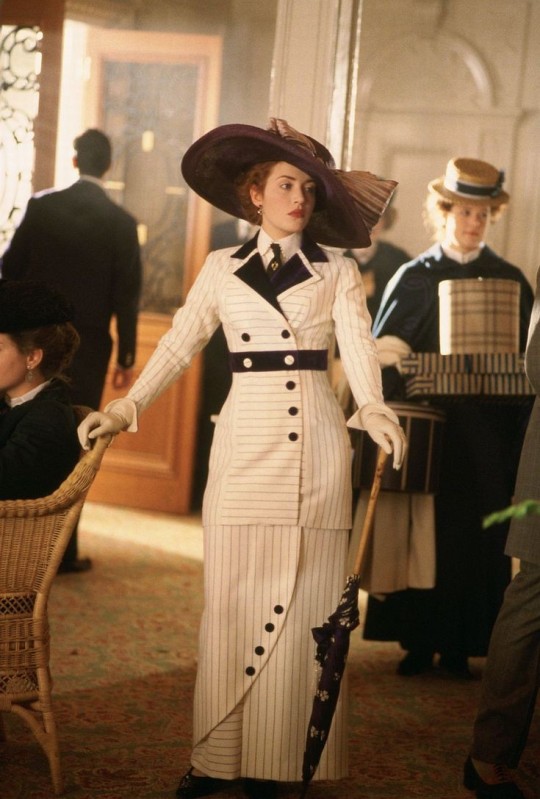
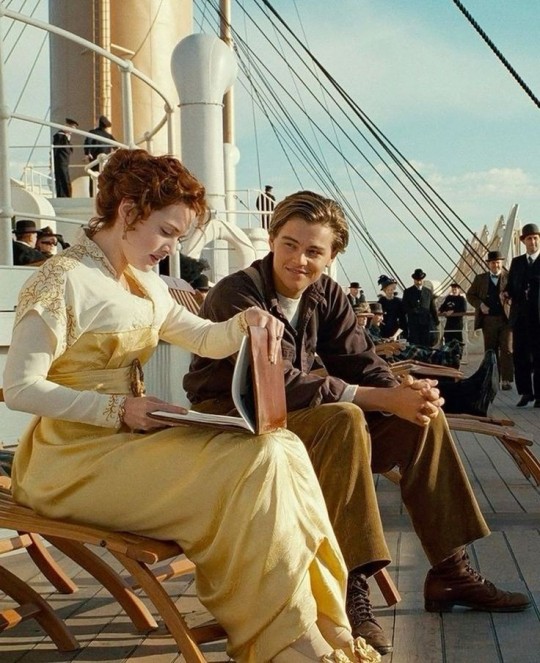




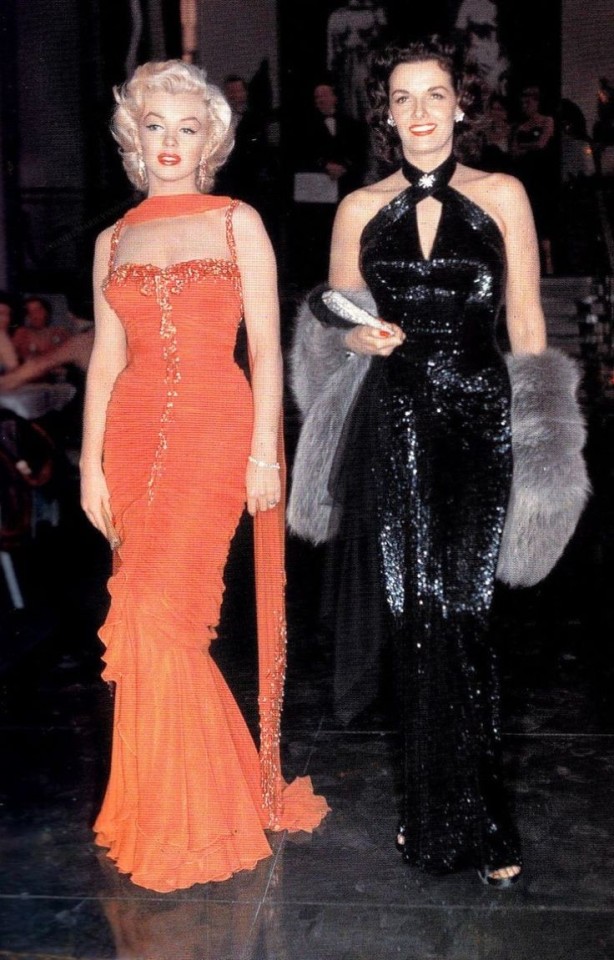

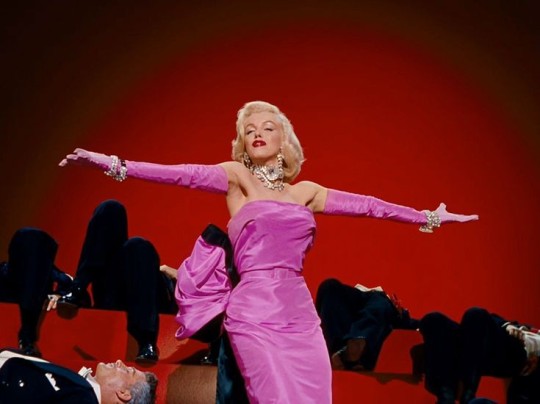
Sagittarius or 9th house films 👐🍺😜🌵🐎🏖🎱♐️
Here are some Sagittarian films or ninth house people for starters I have put gentlemen before his blondes for some reason I feel like a film where they're traveling and they're out it's here on a boat makes sense for a sad since travel is ruled by them and the fact that they think that Marilyn is a cornartist I mean yes she deceives men but like she says a woman can be pretty and no one bats and either but a man does something and it's completely different it's a fun Marilyn Monroe film not too deep but a fun film for all, the next time I have put is Pulp Fiction it is weird twist and turns it's fun it's not too well it is complicated actually but it's passionate it's fun it's you never know what it's gonna turn there's a bit of a Love Story and it's a great Quentin Tarantino film one of the best films of the 90s some great plot twists coming from the weird minor of Quentin Tarantino there's some strange parts as well which you guys love, next I put moonlight which follows three parts of a story of a person using different names for each part of the chapters in The Story it's sad it's realistic is honest it's raw and I know that and he Sagittarius would like this film it's all very moving. The last one I've put here is a good old-fashioned Love Story another one that's on a boat but it's a Colt classic it's a my big Motion Picture James Cameron's Titanic with Rose and Jack Rose comes from a wealthy background and is known a long high societies she feels trapped with her partner, she tries to end it all on the edge of the boat this is when she meets Jack the hero whose come from nothing and actually won his ticket through gambling it's a beautiful romance but it's also very very sad because it's a true story they love story isn't but obviously loads of people lost their life on the Titanic but who knows they could have been a Jack and rose I just thought it's a nice romantic classic for you guys when you're feeling that way.
#astro observations#astro placements#astro community#astrology#astrology observations#astro notes#astroblr#fypage#sagittarius#sagittarius placements#flims#pulp fiction#Titanic#gentlemen prefer blondes#moonlight
9 notes
·
View notes
Text
─────── welcome to ultravi0ence ‧₊˚🖇️✩ ₊˚.ᐟ


𝒶bout ultravi❄️lence
⋆·˚ ༘ * 🔭 lama, directed by tim burton, chris girl, winter gal, blush blind, vanilla scented, nailea devora irl, ghost reader & writer, fashion killa, old money obsessed, architect lover, ralph lauren & old chanel lover, mirrorgenic, lana del rey addict.

FLIMS I J’ADORE
⋆·˚ ༘ * 📽️ what a girl wants, corpse bride, crossroads, whatever it takes, mr. & mrs. smith, white chicks, uncharted, spiderman no way home, coraline, home alone 2.
ARTISTS THAT MAKE ART
⋆·˚ ༘ *🎤 lana del ray, madison beer, the neighbourhood, arctic monkeys, billie eilish, cigarettes after s3x, strawberry guy, the marías, sade, beabadoobe, tyler the creator, a$ap rocky, frank 🎱cean, chase atlantic, mac demarco, montell fish, childish gambino, bruno mars, metro boomin, the weekend, raye, yeat, travis scott, playboi carti, the cranberries, clairo, vangelis.
MY SOCIALS
⋆·˚ ༘ * 💻 insta, tiktok, pin, wp.

#intro post#introduction#intro blog#music#singer#singers icons#winter#singer songwriter#flims#movies#lana del rey#lana stan#wattpad#tiktok#pinterest#instagram
2 notes
·
View notes
Text
The Scent of Green Papaya: Gender Roles in Old Vietnamese Society.

The Scent of Green Papaya (Vietnamese title: Mùi đu đủ xanh, French title: L’Odeur de la papaye verte), directed by Vietnamese-French director Trần Anh Hùng, was produced with funding from a French producer. The film portrays the lifestyle of Vietnamese people before and during the Vietnam War (around the 1940s-1970s) and reflects on gender roles in Vietnamese society at that time.
Mùi, an innocent girl from the countryside, has to leave her hometown to work as a servant in the home of a wealthy family whose financial status is deteriorating, located in Saigon, Vietnam. The household includes the father (the wealthy man), the mother (the lady of the house), the grandmother (the wealthy man’s mother), the eldest son Trung, the middle son Lam, and the youngest son Tin. The youngest daughter, Thọ, passed away a long time ago. The middle-aged housemaid is named Tí.
Every day, Mùi leads a simple life and learns from the nature around her with the pure and innocent perspective of a child. An old man named Thuận, who has secretly loved the grandmother since her youth, visits the house every day to gaze at the roof and reminisce about her, with Mùi offering him comfort and companionship.
Ten years later, when Mùi has grown into a twenty-year-old servant, the eldest son Trung decides to dismiss her and send her to work as a servant in the house of his friend, Khuyến. Mùi has secretly loved Khuyến since she was a little girl. Khuyến, also the son of a wealthy family, is a pianist engaged to a woman of his social class named Thu. Their relationship slowly changes as Mùi begins working as a housemaid in Khuyến’s home.
The story unfolds at a slow pace, with no complex plotlines. The film conveys its narrative through artistic elements, sound, and the actors’ subtle expressions, with more than 80% of the storytelling requiring interpretation of the carefully embedded symbols. This unique storytelling style is characteristic of Trần Anh Hùng’s work.
Roles, Responsibilities, and Vietnamese Way of Life — Influence of Chinese Culture in Vietnamese Society
This film reflects Vietnamese society before 1940, when the patriarchal system was still deeply entrenched, manifesting in the way life was organized within households. Since Vietnamese culture has been influenced by Chinese culture, the film subtly reflects the yin-yang energy as per Confucian philosophy.
In this context, balance between male and female energies is necessary to create a warm and harmonious household or society. In the film, the wealthy family’s home is depicted as lacking balance between male and female energies, resulting in a problematic household.
This imbalance is evident from the fact that the wealthy household consists of four males: the father (the wealthy man), the eldest son, the middle son, and the youngest son. The males in the house take no responsibility for anything inside or outside the home, spending most of their time playing music, seeking pleasure outside, and wasting their inherited wealth (the father and eldest son, Trung, often indulging in their desires without concern for the family’s financial status). Midway through the film, the wealthy father, who had behaved properly since the death of his daughter, steals the family’s savings to spend on women, eventually returning home ill and penniless, dying soon after.
Other behaviors also illustrate this imbalance, such as reading leisurely, killing or torturing animals to vent frustrations from a dysfunctional family (the middle son Lam, who is emotionally repressed, often uses anger to solve problems and isolates himself with books), or playing cruel tricks on female servants for amusement (the youngest son Tin, who often harasses the servant Mùi, like urinating in a vase she cleaned or hiding a lizard in it to startle her, causing the vase to break in hopes that Mùi would be punished. However, the lady of the house understands the situation and does not blame Mùi, knowing it was her son’s doing).
In contrast, the women in the household are responsible for domestic duties and earning money. These women include the grandmother, the mother (the lady of the house), and the elderly maid. The film shows that the female energy in the household is weaker than the male energy, with the women being middle-aged to elderly and having less power compared to the younger and middle-aged men who still hold much control.
Additionally, the film portrays the character Thuận, the old man who secretly loves the grandmother, as an outsider with no voice or status to influence or act as he wishes, in stark contrast to the four men in the wealthy family, who have the authority to do whatever they please. The women, meanwhile, lack the power to criticize or condemn any wrongdoing.
Interestingly, the women in the film end up blaming themselves when bad things happen within the family, reflecting the strong presence of patriarchy in both the wealthy family and Vietnamese society at the time.
Therefore, the lady of the house feels compelled to bring in a new servant, the young Mùi, to restore the household’s balance. For the lady, Mùi is more than just a servant; she becomes a replacement for the daughter she lost to illness many years ago. The lady even admits that having Mùi in the family has helped heal her emotionally from her previously unhappy life.
Additionally, the household comes to view Mùi as a “daughter” of the family in a way. The lady once believed that Lam (the middle son) might fall in love with Mùi and take her as his wife, but he does not, instead moving away to pursue a secluded life writing books, possibly signifying that he sees her as a sister. Another significant event is when Trung (the eldest son) dismisses Mùi and sends her to work as a servant in the home of his friend Khuyến, which parallels the tradition in Chinese or Vietnamese culture where a daughter marries into her husband’s household.
Thus, the roles of daughter, bride, and servant in this film are almost indistinguishable, as serving, pleasing, and supporting fathers, brothers, and husbands are still considered the duties of women in Asian culture.
Mui’s Social Status Progression through Film Symbols
At the age of 20, Mùi moves to work at Khuyen’s home, a pianist who lives alone, with occasional visits from his fiancée, Thu. Mùi’s daily routine consists of cooking, cleaning, checking the house, polishing shoes, and mending Khuyen’s clothes. Everything she does is filled with love and willingness, as if she were already his wife.
In contrast, Thu represents a modern woman who disdains traditional domestic roles. She enjoys nightlife and prefers dining out (even though Mùi prepares meals for them, Thu insists on Khuyen taking her out). She also openly invites Khuyen into his bedroom for sex, even when Khuyen appears reluctant, reflecting her modern, forward-thinking approach to relationships.
Thu brings a vase to Khuyen, which symbolizes her assertiveness in the relationship. This can be interpreted as Thu offering herself, her love, and her body too openly, which, from a male perspective, can make a man feel as though he has “lost his masculinity” or his natural role as the pursuer. Khuyen’s indifferent response to the vase, telling her, “It’s broken,” reflects his lack of care or interest in Thu’s affections or her body, which she persistently offers to him. Thu tries to dismiss this rejection by laughing, attempting to cover her disappointment.
Meanwhile, Mùi’s simple life in Khuyen’s home slowly nurtures his growing affection for her. Mùi begins to sense Khuyen’s feelings through his drawings on his music sheets. This shows that Mùi’s presence occupies his thoughts, even during his work. However, Mùi understands her status as a servant, knowing that her feelings for Khuyen, and his for her, are seemingly impossible.
Mùi’s struggle to suppress her feelings is symbolized in the scene where she extinguishes a burning mosquito coil to prevent the fire from spreading, representing her attempt to quell the emotions stirring within her.
The roles of being the “dominant one” and the “submassive one” become clearer in the scene where Mùi dresses beautifully in a red outfit. This shows that no matter how hard she tries to suppress her feelings, she is pleased to know that Khuyến has positive feelings toward her. Her happiness is reflected in her appearance, wearing makeup and lipstick, symbolizing her heightened sexual emotions. However, at the same time, she feels fear toward him, knowing she is merely a servant and a woman with no rights or ability to confront Khuyến.
This feeling is illustrated when Khuyến notices that she has applied lipstick. He behaves like a predator stalking its prey, slowly creeping up on her. When Mùi becomes aware of this, she quickly runs away to hide in fear and paranoia. Khuyến then searches for her around the house, but when they meet, Mùi exhibits submission out of fear and embarrassment. This causes Khuyến to stop pursuing her, as he does not want to frighten her.
The fast, pounding music expresses Khuyến’s anger when his fiancée touches his head playfully. It is well-known that in Southeast Asian cultures, especially among men, the head is considered sacred, and it is a tradition that women should not touch it without permission. If they do, it is seen as disrespectful and a sign of elevating themselves above the man.
Khuyến’s fiancée, however, is a high-society woman, representing a modern woman raised in Western culture. She is outspoken, direct, and bold in expressing her thoughts. Her clothing is also modern, made from expensive fabrics and designed stylishly.
In stark contrast, Mùi is mostly silent throughout the story, only speaking when ordered by her employer or when necessary to respond. She remains quiet, never questioning or resisting anything. She continues to dress in the traditional Vietnamese áo dài, with a clean, makeup-free face, and her long black hair neatly braided.
In contrast, when Mùi enters the room, Khuyến switches to playing soft, graceful music, revealing his hidden affection for her. His feelings for her are tender, both sexually and romantically. This is immediately recognized by Tu, who secretly watches from the window and realizes that Khuyến, her fiancé, has shifted his affections to another woman. Even though Khuyến tries to suppress his feelings, he ultimately decides to approach Mùi in her bedroom, where she does not resist but simply bows her head in acceptance of what is to come.
Thus, Mui represents a woman completely under a patriarchal system, without even realizing it. She is also a symbol of the idealized Asian woman — submissive, humble, gentle, and compliant, a homemaker who respects all men, regardless of age or whether they violate her. Mùi never demands any rights over her own body, as if she does not know that she has those rights, molded by the societal norms of that time.
When Tu realizes that Mùi has taken her place in Khuyến’s heart, she destroys everything in Khuyến’s house, including breaking her own vase and removing her engagement ring before leaving. Mùi is slapped hard by Tu, forcing her to run and hide in her bedroom, deeply upset. When Khuyến sees the wreckage, he shows no reaction, as if he had expected it and understood Tu’s rage.
Tu’s actions reflect her anger at not being chosen by her lover and her defeat by the deeply rooted patriarchal culture in Asia, even though Western influences were already present in Vietnamese society at that time.
Khuyến later approaches Mui in her room and hands her a beginner’s Vietnamese lesson book, symbolizing his offering her the opportunity to become his chosen wife. This also reflects the male authority of that era, where men were the ones to teach and provide opportunities for women.
After Mùi practices reading and writing Vietnamese for a while, with Khuyến as her teacher, she becomes a woman who can finally express her voice without needing anyone to prompt her. In the final scene, she reads a book to Khuyến and their child in her womb.
Mùi, now wearing a yellow maternity dress, exudes the radiance of motherhood — gentle, warm, and peaceful. She represents a woman in a patriarchal society who has accepted its rules. Despite the hardships, she lives calmly and accepts the course of life, ultimately finding the life she had long desired.
#vietnam#movies#flims#film critics#asian#art#nature#symbols#smash the patriarchy#male privilege#toxic masculinity#gender roles#sexism#feminism#women
4 notes
·
View notes
Text

me at 5 obsessed with movies, me now still with a movie obsession.
#2014 tumblr#i miss 2014#girl blogger#thoughts#pink#fashion#movies#cinephile#cinemetography#cinema#flims#uptown girls#dakota fanning#art#brittany murphy
9 notes
·
View notes